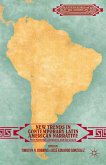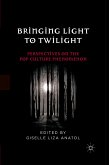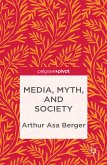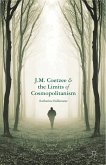Dieser Download kann aus rechtlichen Gründen nur mit Rechnungsadresse in A, B, BG, CY, CZ, D, DK, EW, E, FIN, F, GR, HR, H, IRL, I, LT, L, LR, M, NL, PL, P, R, S, SLO, SK ausgeliefert werden.
'This book makes a very clear, and even relentless, argument about the long history of literatures which present instances of White characters 'evading whiteness' and seeking common ground elsewhere (amongst Native Americans, African Americans, the rural and urban poor, etc.). Notonly are some of the largest theoretical names of the last thirty years front and center, but Traber has successfully understood these works to the point where he can offer critiques and new insights of them. I love the reach of this book: each and every chapter has been carefully researched on its own, and made to fit within the parameters of the broader idea. It is as if a hidden America has been revealed in these pages.' - Scott Michaelsen, Michigan State University; Author of The Limits of Multiculturalism: Interrogating the Origins of American Anthropology
'Through trenchant readings of celebrated American narratives from Mark Twains Adventures of Huckleberry Finn to Alex Cox's Repo Man, Traber traces the paradoxical power of liberal individualism, an ideology that celebrates autonomy and individuality even as it serves as the grounds for conformity. Traber shows how writers and thinkers who attempt to dramatize alternatives to individualist ideology often find the ground of resistance shifted out from under them by US culture's uncanny ability to incorporate otherness and marginality. Traber's study offers a cautionary tale to those critics and theorists who would celebrate the power of hybridity and marginality without sufficiently acknowledging the continuing cultural efficacy of individualist modes of thought and representation." - Cyrus R. K. Patell, New York University; Author of Negative Liberties: Morrison, Pynchon, and the Problem of Liberal Ideology









